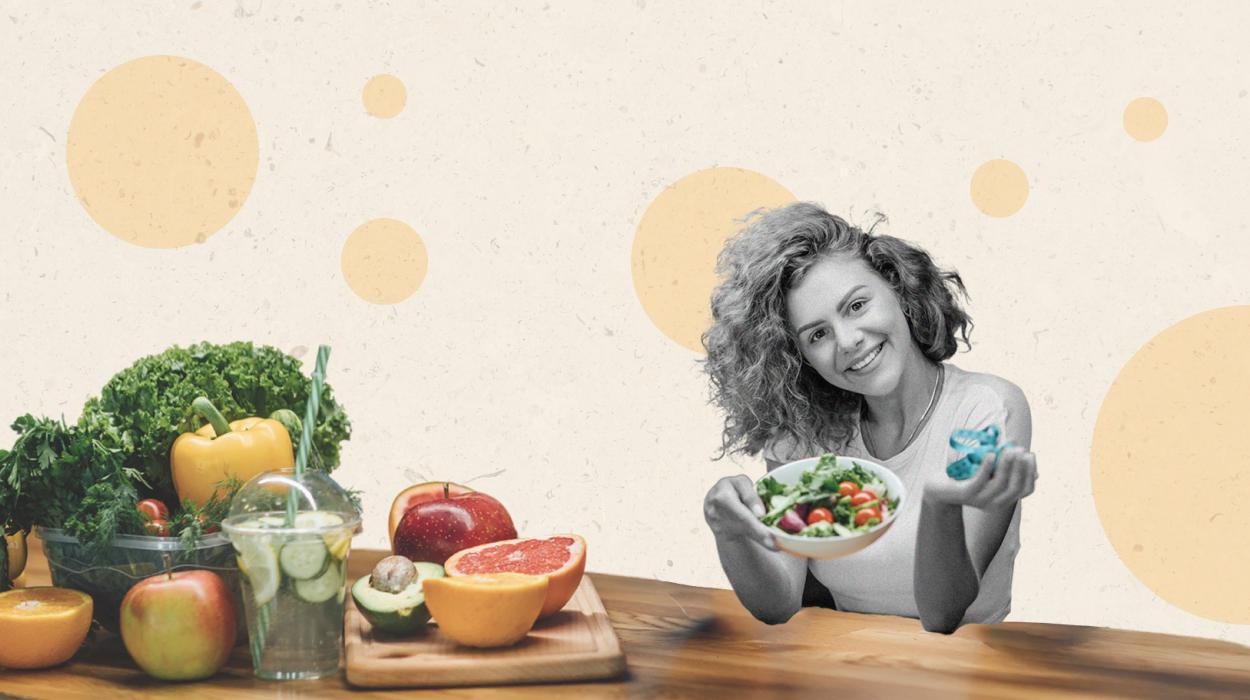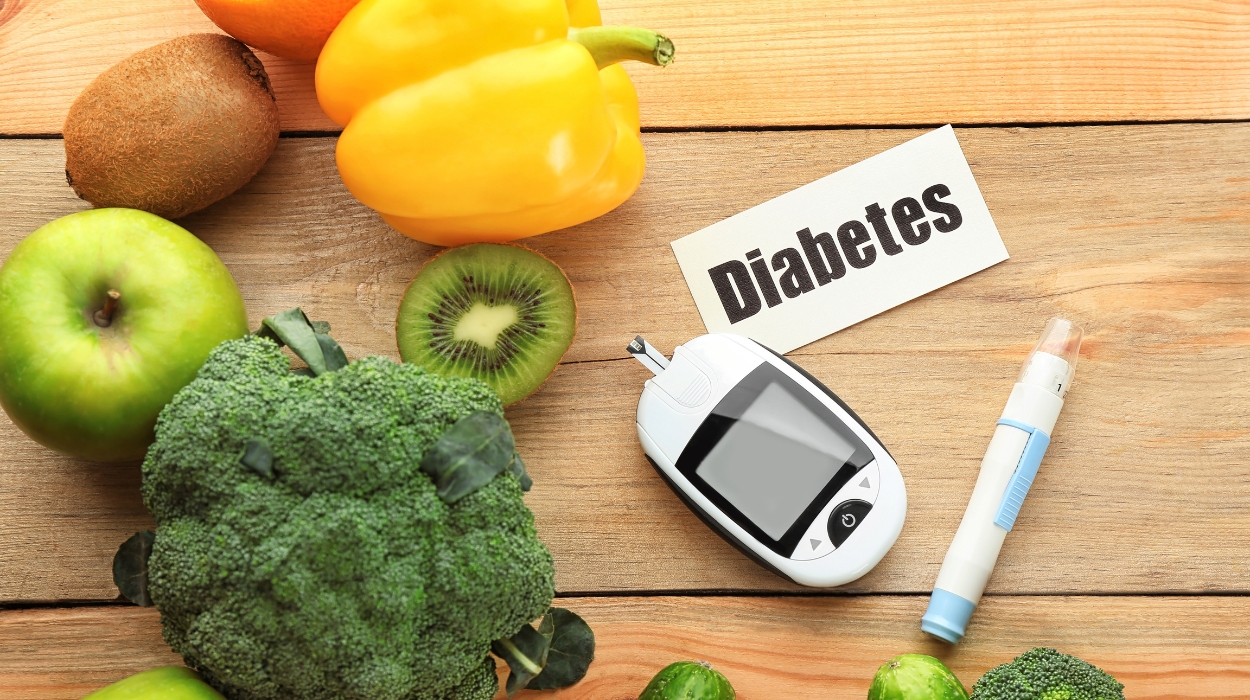 Expert's opinion
Expert's opinion
Expert's opinion
The article is a subjective view on this topic written by writers specializing in medical writing.
It may reflect on a personal journey surrounding struggles with an illness or medical condition, involve product comparisons, diet considerations, or other health-related opinions.
Although the view is entirely that of the writer, it is based on academic experiences and scientific research they have conducted; it is fact-checked by a team of degreed medical experts, and validated by sources attached to the article.
The numbers in parenthesis (1,2,3) will take you to clickable links to related scientific papers.
Plant-Based Diet Meal Plan: Tips & Benefits In 2024

You may be wondering what foods are included in a plant-based diet meal plan. A plant-based diet can include a large variety of different foods. You do not have to be vegan or vegetarian to follow a plant-based diet.
Some people on this diet eat strictly plant-based foods, while others eat primarily plant-based foods occasionally including animal foods.
There are many reasons to start a plant-based diet. Some people may use a plant-based diet meal plan for weight loss or diabetes management. Others may simply want to live a healthier lifestyle. Keep reading to learn about the benefits of eating a plant-based diet.
Whole Food Plant-Based Diet Meal Plan For Seven Days
A plant-based meal plan can include many different foods. Here is a one-week meal plan that includes plant-forward meals. However, you can swap out any foods that you do not like for other plant-based foods.
A couple of lunches repeat so you can meal prep at the beginning of the week.
Monday: Energizing and Satisfying (approx. 1045 calories)
The “Energizing and Satisfying” day plan is designed for those on a plant-based diet looking to enjoy a range of flavors and nutrients. Each meal is a blend of high-fiber carbohydrates, healthy fats, and plant-based proteins, ensuring sustained energy and satisfaction throughout the day. This plan is perfect for anyone seeking to explore the delicious possibilities of a plant-based lifestyle.
| Breakfast | |
| Chia seeds | three tbsp |
| Unsweetened almond milk | a cup |
| Fresh or frozen blueberries | a half cup |
| A dash of vanilla extract |
| Lunch | |
| Chopped kale | a cup |
| Cooked chickpeas | a half cup |
| Cooked brown rice | a half cup |
| Chopped cucumber | a half cup |
| Shredded red cabbage | a half cup |
| Tahini dressing | a tbsp |
| Dinner | |
| Vegan bean burger patty | one |
| Lettuce, tomato, onion for topping | |
| Sesame bun | one |
| Sweet potato wedges | a cup |
Tuesday: Wholesome Green Gourmet (approx. 1276 calories)
The “Wholesome Green Gourmet” day plan offers a delightful variety of flavors and textures. Each meal is thoughtfully designed to provide key nutrients from plant-based sources, ensuring a balance of protein, healthy fats, and carbohydrates. This plan is ideal for those looking to embrace a plant-based lifestyle while enjoying a range of delicious and satisfying meals.
| Breakfast | |
| Crumbled tofu | a half cup |
| Diced potatoes | a cup |
| Chopped tomatoes | a half cup |
| Chopped red onion | a quarter cup |
| Diced peppers | a half cup |
| Lunch | |
| Cooked lentils | a cup |
| Cooked white beans | a half cup |
| Diced tomatoes | a cup |
| Chopped carrots | a half cup |
| Chopped celery | a half cup |
| Sourdough bread | a slice |
| Cilantro for garnish |
| Dinner | |
| Cooked whole-wheat spaghetti | two cups |
| Marinara sauce | a half cup |
| Spinach | a cup |
| Halved cherry tomatoes | a cup |
| Sliced zucchini | a half cup |
| Olive oil | a tbsp |
Wednesday: Nutrient-rich And Flavorful (approx. 1303 calories)
The “Nutrient-Rich and Flavorful” day plan is a perfect representation of a balanced plant-based diet. It includes a variety of foods rich in essential nutrients, offering delightful tastes and textures. This plan is suitable for anyone seeking to enjoy the health benefits of plant-based eating without compromising on taste and satisfaction.
| Breakfast | |
| Oats | a half cup |
| Unsweetened almond milk | a cup |
| Flax seeds | a tbsp |
| Chia seeds | a tbsp |
| Natural peanut butter | a tbsp |
| Medium apple | one |
| Lunch | |
| Chopped kale | a cup |
| Cooked chickpeas | a half cup |
| Cooked brown rice | a half cup |
| Chopped cucumber | a half cup |
| Shredded red cabbage | a half cup |
| Tahini dressing | two tbsp |
| Dinner | |
| Ramen noodles | two oz |
| Sliced mushrooms | a cup |
| Chopped bok choy | a cup |
| Edamame | a half cup |
| Bean sprouts and green onions for topping |
Thursday: Hearty And Nourishing (approx. 1201 calories)
The “Hearty and Nourishing” day plan is perfect for individuals embracing a plant-based diet. Each meal is designed to provide lasting energy and satisfaction. The combination of avocado toast for breakfast and the hearty lentil and white bean soup for lunch and dinner ensures a balance of essential nutrients while keeping the meals exciting and flavorful. This meal plan is ideal for those seeking to maintain a balanced diet with plant-based ingredients.
| Breakfast | |
| Medium avocado | one |
| Whole wheat bread | two slices |
| Nutritional yeast | a tbsp |
| Red pepper flakes and sesame seeds | a pinch |
| Lunch | |
| Cooked lentils | a cup |
| Cooked white beans | a half cup |
| Diced tomatoes | a cup |
| Chopped cup carrots | a half cup |
| Chopped celery | a half cup |
| Cilantro for garnish | |
| Sourdough bread | a slice |
| Dinner | |
| Cooked chickpeas | a cup |
| Chopped cauliflower | a cup |
| Coconut milk | a half cup |
| Cooked jasmine rice | a cup |
| Spices and herbs for curry | a tbsp |
Friday: Plant-Powered Day (approx. 1100 calories)
Fuel your day with the goodness of plant-based nutrition! This meal plan is designed to provide a balanced intake of nutrients, featuring a chia-packed breakfast, a colorful and nutrient-rich Buddha bowl for lunch, and a satisfying chickpea pasta salad for dinner. You’ll enjoy a delicious variety of flavors while nourishing your body with essential vitamins and minerals.
| Breakfast | |
| Chia seeds | two tbsp |
| Unsweetened almond milk | a cup |
| Cocoa powder | a tbsp |
| Fresh or frozen strawberries | a half cup |
| Lunch | |
| Chopped kale | two cups |
| Chickpeas, cooked and drained | a half cup |
| Cooked brown rice | a half cup |
| Chopped cucumber | a half cup |
| Shredded red cabbage | a quarter cup |
| Creamy tahini dressing | (a tablespoon of tahini, a tablespoon of lemon juice, tablespoon water, salt, and pepper to taste) |
| Dinner | |
| Cooked chickpea pasta | two cups |
| Halved cherry tomatoes | a cup |
| Diced bell pepper | a half cup |
| Sliced black olives | a quarter cup |
| Finely chopped red onion | two tbsp |
| Olive oil | a tbsp |
Saturday: Veggie-Focused Vitality (approx. 1050 calories)
Embrace the vibrant world of plant-based eating with this wholesome meal plan. From a fruity and filling smoothie bowl for breakfast to a hearty lentil and white bean soup for lunch and a savory tofu stir-fry for dinner, this plan is designed to keep you nourished and satisfied while following a plant-based lifestyle.
| Breakfast | |
| Frozen banana | one |
| Frozen mixed berries | a half cup |
| Flax seeds | a tbsp |
| Coconut or Greek yogurt | a half cup |
| Fresh fruit and granola for topping |
| Lunch | |
| Rinsed and drained lentils | a cup |
| Canned or cooked white beans | a cup |
| Diced tomatoes | two cups |
| Diced carrots | a cup |
| Diced celery | a half cup |
| Fresh cilantro for topping | |
| Sourdough toast (optional) |
| Dinner | |
| Cubed tofu | eight oz |
| Broccoli florets | a cup |
| Sliced red pepper | a half |
| Trimmed string beans | a half cup |
| Brown rice for serving |
Sunday: A Day of Nutrient-Rich Delights (approx. 1,298 calories)
Welcome to a day of delicious, nutritious, and wholesome plant-based meals that will nourish your body and satisfy your taste buds. This meal plan provides a balance of essential nutrients to support your health and energy levels throughout the day.
| Breakfast | |
| Whole wheat bread | two slices |
| Natural peanut butter | two tbsp |
| Medium sliced banana | one |
| Flax seeds | a tbsp |
| Hemp hearts | a tbsp |
| Cacao nibs | a tbsp |
| Lunch | |
| California sushi roll | six pieces |
| Steamed edamame beans | a cup |
| Dinner | |
| Large red bell peppers | two |
| Cooked quinoa | a half cup |
| Drained and rinsed canned black beans | a half cup |
| Diced tomatoes | a half cup |
| Diced onion | two tbsp |
| Chopped cilantro | two tbsp |
What Is A Plant-Based Diet?
A plant-based diet is a way of eating where the majority of your diet is made up of plant-based foods. Plant-based diets can include meat, dairy, and eggs in moderation.
What Are The Benefits Of Plant-Based Eating
Plant-based diets can have many health benefits, including reduced risk of heart disease,[1] cancer risk, and cognitive decline.[2] However, primary health benefits appear to be weight management[3] and diabetes management.[4]
Plant-based eating seems to lead to overall improved health, with the only potential downside[5] being a lack of protein and certain vitamins. First, let’s learn about Plant-Based diets.
Weight Management

When people are trying to manage their weight, they often try to eat a healthy diet. Whether you’re striving to achieve weight gain or weight loss, meal planning with a focus on plant-based options can assist you in adhering to your goals.
Research shows that a whole food plant-based diet meal plan can help you lose weight.
Additionally, a 2014 review[3] of randomized control trials revealed that vegetarian diets offer more weight loss benefits than diets that include meat.
Researchers in 2020 and 2021 reviewed the available research for all different types of plant-based diets. These reviews found that plant-based diets typically had lower calorie density,[6] fat levels,[7] and cholesterol than non-plant-based diets.
These differences resulted in weight loss and reduced obesity levels.
Diabetes Management

Diabetes can be a life-changing diagnosis. However, if you adhere to a plant-based diet for diabetes, it may help prevent or manage the condition. Research indicates[8] that a vegetarian diet may help regulate glucose levels, lower cholesterol levels, and regulate body weight in people with diabetes.
These effects could make the vegetarian diet a beneficial tool for managing diabetes and other chronic diseases.
Another study[9] showed that adherence to a plant-based diet reduced the risk of developing type 2 diabetes. The individuals who more closely adhered to a plant-based diet had a lower risk of developing type 2 diabetes than individuals who only loosely adhered to plant-based eating.
Researchers[10] also reported a lower incidence of type 2 diabetes cases in populations that ate a healthy plant-based diet. The
Tips For People On A Plant-Based Diet Plan
Research[5] indicates that people who follow vegan recipes for a plant-based diet may struggle to get an adequate amount of the following nutrients: protein, B vitamins, omega-3s, iron, niacin, iodine, zinc, calcium, and vitamin D.
Some vegans choose to use dietary supplements to fill in these nutritional gaps.
Researchers argue that adding small amounts of animal-based products to a plant-based diet allows for many of the same benefits as a vegan plant-based diet but reduces the risk of nutritional deficiencies.
This is because foods like seafood, meats, dairy, and eggs are rich in protein, B vitamins, omega-3s, iron, calcium, and niacin.
If you are committed to this diet and do not want to eat any animal products, there are a variety of supplements for a plant-based diet that can help fulfill your nutritional needs.
For example, vegan protein bars and protein powder options are available to supplement your protein needs.
If you are following any special diet or are concerned about your nutrition, consulting with a registered dietitian is wise. A registered dietitian can help you create a plant-based meal plan for weight loss or weight gain.
Recommended Foods For A Plant Based Diet Plan
Different versions of plant-based diets recommend different foods. Some common variations of plant-based diets include vegetarian, vegan, pescatarian, and flexitarian.
If you want to reap the rewards of a plant-based diet, experts recommend[11] avoiding foods high in sugar and saturated fats, even if they are plant-based.
Vegetarian
On a vegetarian diet, recommended[11] foods could include any food besides meat and seafood. Eating vegetarian does not necessarily mean you get most of your food from plants.
If you want to get the benefits of a plant-based diet, you should eat primarily plant foods with a moderate amount of dairy products and eggs.
Vegan
The vegan diet excludes all animal-derived foods, meaning it is 100% plant-based. Getting all of the necessary nutrients from plant foods can be difficult.
For this reason, experts recommend[11] that vegans be intentional about including foods abundant in protein, vitamin B12, calcium, and vitamin D.
Pescatarian For A Plant-Based Diet Plan
The pescatarian diet[11] is basically a vegetarian diet that includes seafood. In other words, pescatarians do not eat meat and poultry but do eat fish, seafood, dairy, and eggs.
In order for the pescatarian diet to be plant-based, the majority of the foods consumed should be plant-based, with a moderate amount of seafood, dairy products, and eggs.
Flexitarian
The term flexitarian typically refers to someone who adheres to a vegetarian diet a majority of the time but occasionally eats meat and seafood. Some researchers[5] argue that a diet like this, which they call an omnivorous plant-based diet, is the best option for balancing nutritional needs.
Summary
Plant-based diets can incorporate many different types of food, including meat and other animal products, in moderation. A plant-based diet can help you manage your weight and diabetes. Additionally, plant-based diet benefits include contributions to disease prevention.
If you are adhering to a plant-based diet, pay special attention to the amount of protein, B vitamins, omega-3s, iron, niacin, iodine, zinc, calcium, and vitamin D in your diet.
Ask your registered dietitian for guidance on how plant-based ingredients can help you reach your health goals. And in the meantime, consider meal planning and writing an updated shopping list!
Frequently Asked Questions
On a plant-based diet, you primarily eat foods like vegetables, fruits, legumes, and grains. You may completely avoid or limit animal foods like meat, seafood, dairy, and eggs.
On some plant-based diets, such as vegetarian, flexitarian, and pescatarian diets, you can eat eggs, but if you follow a vegan diet, then you cannot eat eggs.
On some plant-based diets, such as vegetarian, flexitarian, and pescatarian diets, you can eat cheese. However, if you follow a vegan diet, you cannot eat cheese.
Yes, people on a plant-based diet can eat bread. Bread is typically made from all plant ingredients, such as wheat flour, water, and oil.
+ 11 sources
Health Canal avoids using tertiary references. We have strict sourcing guidelines and rely on peer-reviewed studies, academic researches from medical associations and institutions. To ensure the accuracy of articles in Health Canal, you can read more about the editorial process here
- Zuo Xian Gan, Huey Fen Cheong, Tu, Y.-K. and Kuo, P.-H. (2021). Association between Plant-Based Dietary Patterns and Risk of Cardiovascular Disease: A Systematic Review and Meta-Analysis of Prospective Cohort Studies. [online] 13(11), pp.3952–3952. doi:https://doi.org/10.3390/nu13113952.
- Jiang, X., Huang, J., Song, D., Deng, R., Wei, J. and Zhang, Z. (2017). Increased Consumption of Fruit and Vegetables Is Related to a Reduced Risk of Cognitive Impairment and Dementia: Meta-Analysis. [online] 9. doi:https://doi.org/10.3389/fnagi.2017.00018.
- Huang, R., Huang, C.-C., Hu, F.B. and Chavarro, J.E. (2015). Vegetarian Diets and Weight Reduction: a Meta-Analysis of Randomized Controlled Trials. [online] 31(1), pp.109–116. doi:https://doi.org/10.1007/s11606-015-3390-7.
- Wright, N.A., Wilson, L.R., Smith, K., Duncan, B.N. and McHugh, P.E. (2017). The BROAD study: A randomised controlled trial using a whole food plant-based diet in the community for obesity, ischaemic heart disease or diabetes. [online] 7(3), pp.e256–e256. doi:https://doi.org/10.1038/nutd.2017.3.
- O’Keefe, J.H., O’Keefe, E.L., Lavie, C.J. and Cordain, L. (2022). Debunking the vegan myth: The case for a plant-forward omnivorous whole-foods diet. [online] 74, pp.2–8. doi:https://doi.org/10.1016/j.pcad.2022.08.001.
- Ivanova, S., Delattre, C., Karcheva-Bahchevanska, D., Niko Benbasat, Vanya Nalbantova and Ivanov, K. (2021). Plant-Based Diet as a Strategy for Weight Control. [online] 10(12), pp.3052–3052. doi:https://doi.org/10.3390/foods10123052.
- Tran, E., Hanna Fjeldheim Dale, Jensen, C. and Gülen Arslan Lied (2020). Effects of Plant-Based Diets on Weight Status: A Systematic Review. [online] Volume 13, pp.3433–3448. doi:https://doi.org/10.2147/dmso.s272802.
- Viguiliouk, E., Cyril W.C. Kendall, Kahleova, H., Rahelić, D., Jordi Salas-Salvadó, Choo, V.L., Sonia Blanco Mejia, Stewart, S.T., Raz, I., David J.A. Jenkins and Sievenpiper, J.L. (2019). Effect of vegetarian dietary patterns on cardiometabolic risk factors in diabetes: A systematic review and meta-analysis of randomized controlled trials. [online] 38(3), pp.1133–1145. doi:https://doi.org/10.1016/j.clnu.2018.05.032.
- Qian, F., Liu, G., Hu, F.B. and Bhupathiraju, S.N. (2019). Association Between Plant-Based Dietary Patterns and Risk of Type 2 Diabetes. [online] 179(10), pp.1335–1335. doi:https://doi.org/10.1001/jamainternmed.2019.2195.
- Ambika Satija, Bhupathiraju, S.N., Rimm, E.B., Spiegelman, D., Chiuve, S.E., Borgi, L., Willett, W.C., Manson, J.E. and Hu, F.B. (2016). Plant-Based Dietary Patterns and Incidence of Type 2 Diabetes in US Men and Women: Results from Three Prospective Cohort Studies. [online] 13(6), pp.e1002039–e1002039. doi:https://doi.org/10.1371/journal.pmed.1002039.
- Clem, J. and Barthel, B. (2021). A Look at Plant-Based Diets. Missouri medicine, [online] 118(3), pp.233–238. Available at: https://www.ncbi.nlm.nih.gov/pmc/articles/PMC8210981/.



